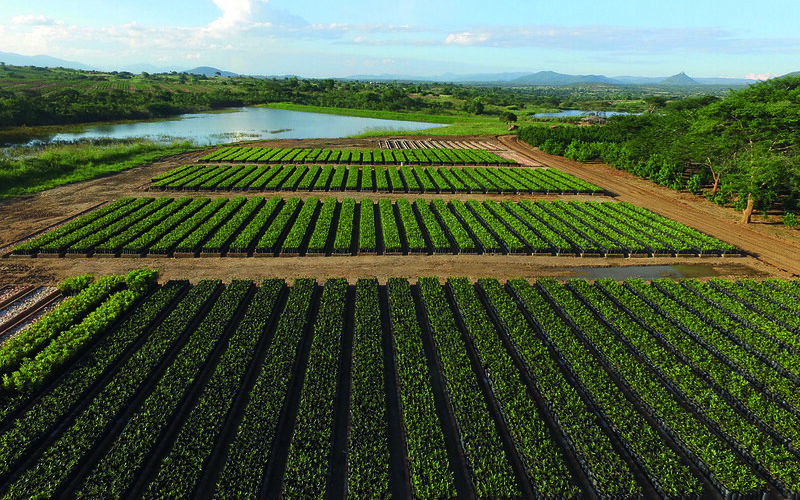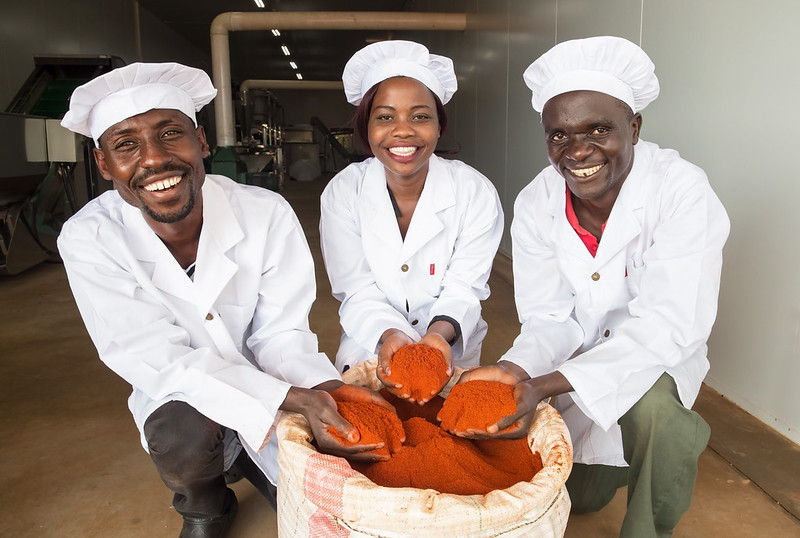February 24, 2022
Norfund has invested 20 m USD of equity in AgDevCo, a specialist investor focusing on developing African agribusiness.

AgDevCo has invested in 80 agribusinesses since it was established in 2010, and today has a portfolio worth 150 m USD, spread over nine countries in Africa: Ghana, Ivory Coast, Kenya, Mozambique, Malawi, Rwanda, Tanzania, Uganda, and Zambia.
The organisation aims to build a thriving commercial African agricultural sector, while also promoting resilience, gender equality, and the production of quality and nutritious food. AgDevDo invests across the agricultural value chain and works with a variety of sectors and crops.
The UK’s CDC (soon to be British International Investment), and the U.S. International Development Finance Corporation also committed 50 m of equity and 20 m of senior debt, respectively.
In Sub-Saharan Africa more than 70% of the population harvests their food daily. Investments in local value chains which develop agriculture and market access can have development effects such as increased income, job creation, and better food security.
Active ownership
Norfund joins AgDevCo as an active co-owner, together with the British CDC and American DFC.
“Norfund is very pleased to partner with AgDevCo to deliver on our joint mission: to create jobs and improve lives by investing in businesses that drive sustainable development”, says Ellen Cathrine Rasmussen, EVP, Scalable Enterprises. “More than half of Sub-Saharan Africa’s population work in agriculture, yet Africa does not produce enough food to feed the continent. The investment in AgDevCo will create jobs, increase food production, improve climate change resilience, and promote gender equality.”
Rasmussen has previous experience from Yara working in Africa and will join the organisation’s board.

“The AgDevCo team’s skills, networks and achievements are impressive – and I look forward to working with them”
Ellen Cathrine Rasmussen, EVP, Scalable Enterprises
Building value chains – such as macadamia nuts in Malawi
AgDevCo was established in 2009 with initial endowment funding from the UK government. The organisation has already created more than 15,000 jobs and increased the incomes of 750,000 smallholder farmers.
With over a decade of experience, the organisation is now poised to focus on commercial investments which can establish profitable businesses on an even larger scale.
“In addition to obtaining capital, AgDevCo helps the businesses it invests in by offering professional and technical support related to for example climate and gender”, says Rasumussen.
AgDevCo’s investments usually range between 2 million to 10 million USD. AgDevCo works in a variety of sectors and crops, including high-value export crops like avocados and macadamias, nutritious food industries for domestic markets, and affordable meat protein like poultry and fisheries. Portfolio companies are involved throughout the food sector from primary production, through processing to retail.

One example is Tropha in Malawi, which produces macadamia nuts, chillies, and paprika. Tropha connects 2500 smallholder farmers to the market. In order to generate income while the macadamia trees are growing, Tropha has ensured year-round irrigation so that the smallholders can grow chillies and peppers for paprika. AgDevCo also worked with Tropha to teach the farmers about integrated pest control.
Milestone for AgDevCo
Securing investment from CDC, Norfund and DFC is a major milestone in AgDevCo’s history”, say Keith Palmer, AgDevCo’s founder and Chairman. “We are excited that our vision is shared by our new funders, who recognise the important contribution that AgDevCo investments can make to productivity, sustainability, and inclusivity in Africa. Their funding marks the beginning of a partnership in which AgDevCo will use its sector specialism, drawing on our new funders’ networks and resources, to increase the number of impactful investments in African agriculture.”